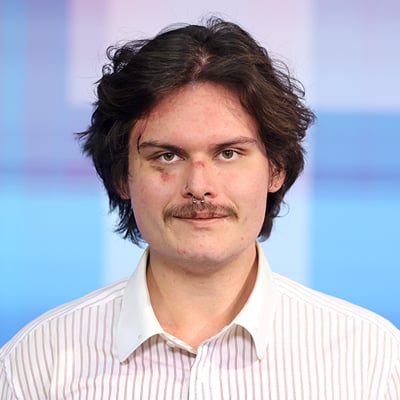
TruLite Health announced an agreement with Mayo Clinic Arizona to use and enhance the software systems developer’s Truity software in clinical practice. The hospital will focus on feedback, workflow enhancements and evaluating features of the health equity software platform. (Photo by Jack Orleans/Cronkite News)

The American, Arizona and Mayo Clinic flags wave in the wind on Feb. 8 on the clinic’s Scottsdale campus on Shea Boulevard. (Photo by Jack Orleans/Cronkite News)
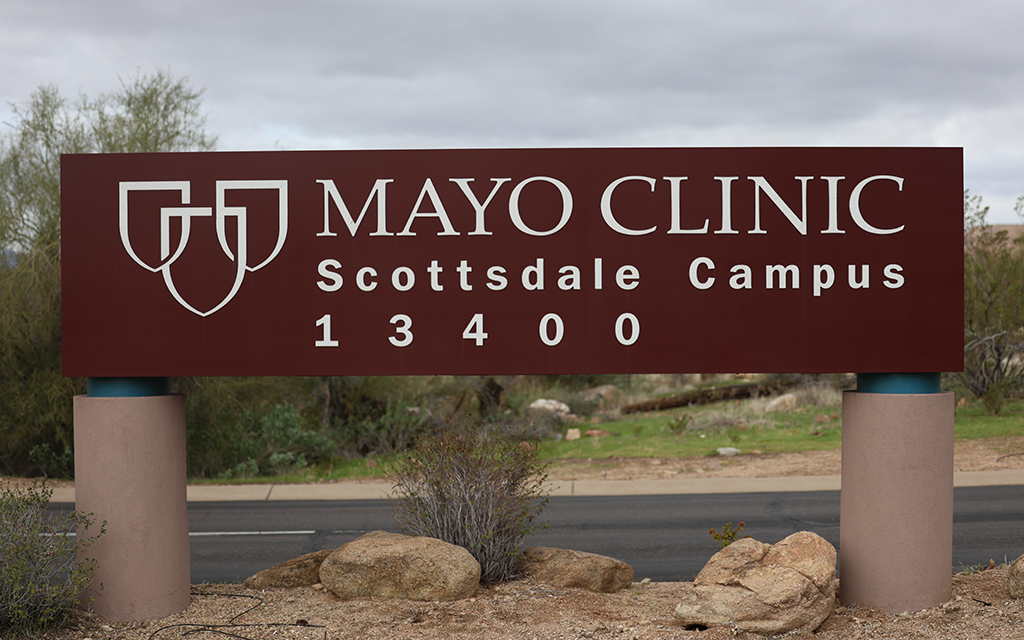
Mayo Clinic in Scottsdale, one of its two main Arizona campuses, on Feb. 8. (Photo by Jack Orleans/Cronkite News)
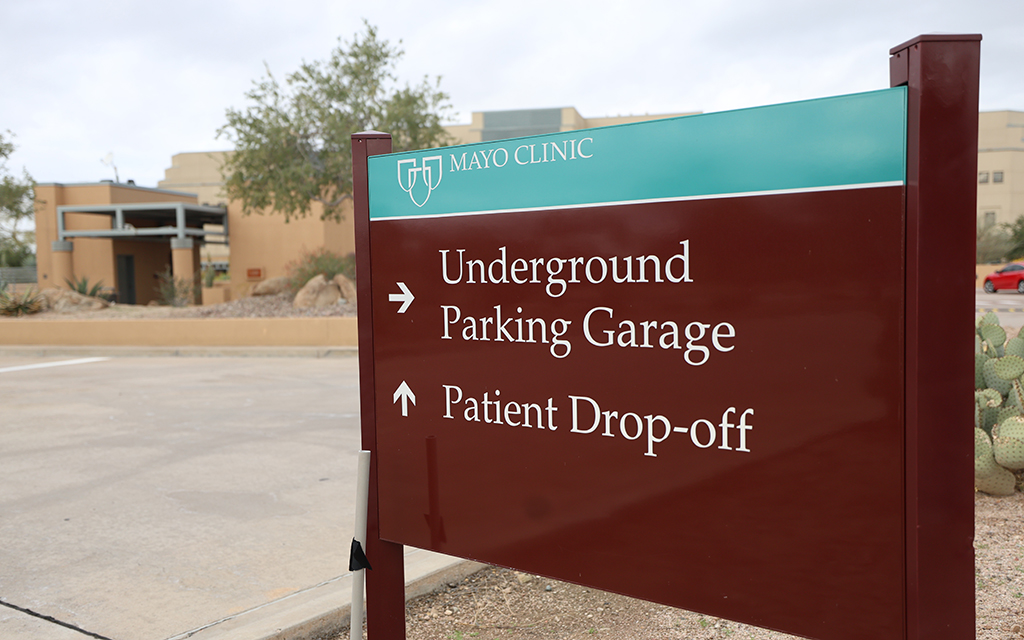
The Mayo Clinic in Scottsdale patient dropoff sign on Feb. 8. (Photo by Jack Orleans/Cronkite News)
PHOENIX – An expecting mother goes for her first ultrasound with a new doctor. During the appointment, the doctor’s attention is drawn to an alert on her computer about the maternal mortality rate for Black women, like her new patient, being 2.6 times higher than that for non-Hispanic white women in the United States. The doctor adjusts her patient’s care plan, making personalized clinical decisions.
With the integration of Truity, a comprehensive health equity software platform developed by TruLite Health, this hypothetical situation may soon become real for patients.
“If you are not white, male, educated, living in an urban ZIP code, have some money and straight, your outcomes are likely worse in some capacity, and that’s the disparity,” Dr. Alan Roga, co-founder and CEO of TruLite Health, said. “How’s that possible in the wealthiest country in the world?”
The Truity software tool is designed to identify and remedy the kinds of disparities named by Roga, for instance the“institutionalized racism and bias in medicine” researchers have highlighted as reasons behind the disparate Black maternal mortality rates.
TruLite Health, a software systems developer based in Tempe, set out to tackle clinical bias that leads to health inequities. The company studied health care tools, practitioners and research and found that disparities are getting worse. To repair clinical bias, Truity processes patient data and health equity knowledge in order to provide clinical, social and behavioral interventions to improve health care outcomes with diverse populations.
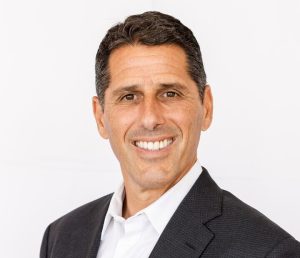
Dr. Alan Roga, co-founder and CEO of TruLite Health:. “If you are not white, male, educated, living in an urban ZIP code, have some money and straight, your outcomes are likely worse in some capacity, and that’s the disparity.” (Photo courtesy of TruLite Health)
Truity can alert providers to known disparities and suggest patient-specific interventions such as early screenings, adjusting medication dosages and delivering educational resources to patients through a portal. Patients are encouraged to ask questions and be proactive regarding their health care plan.
TruLite was founded in 2021 to address the health inequities that cost the U.S. health care system nearly $320 billion, according to Deloitte, an international auditing and consulting company. Roga and the TruLite team found that disparate care exists across the globe and is widening, for reasons that go beyond socioeconomics, like a lack of diversity in clinical trials. They set out to remediate clinical bias by integrating the Truity software into daily workflows through health systems’ electronic records systems.
Deloitte’s 2022 study estimates that in less than 20 years, the cost of health disparities could reach $1 trillion. According to its actuarial team, reaching that cost is not sustainable and would further impact affordability, quality and access to care.
“This is a significant issue, not only a financial issue and an economic problem, it’s a moral problem that we have to face and address,”Dr. Nathan Delafield, associate chair of equity, inclusion and diversity for the department of medicine at Mayo Clinic Arizona, said. “It’s a public health emergency that we have to address in order to improve health care outcomes, because at the end of the day inequity leads and lends itself to delayed diagnosis, poor communication, terrible patient care and patient experience.”
Health disparities are differences in the burden of diseases, injury, violence or opportunities that are experienced by socially disadvantaged populations. These populations may differ in race, ethnicity, geographic location, disability status, education, income or gender and are disproportionately affected in health care outcomes.
“We’re seeking to better understand why these differences exist because our understanding of biology and science suggests that we are far more alike than we are different,” Delafield said. “So these differences are likely the result of other factors that are contributing to poor health outcomes for some.”
On Jan. 9, TruLite Health announced an agreement with Mayo Clinic Arizona to use and enhance Truity software in clinical practice. According to Delafield, the hospital will focus on feedback, workflow enhancements and evaluating platform features. He didn’t give a date for when Truity will be officially launched.
Truity is also partnering with Morehouse School of Medicine, in Atlanta, to develop virtual health equity coaching for patients, aimed at improving self-advocacy.
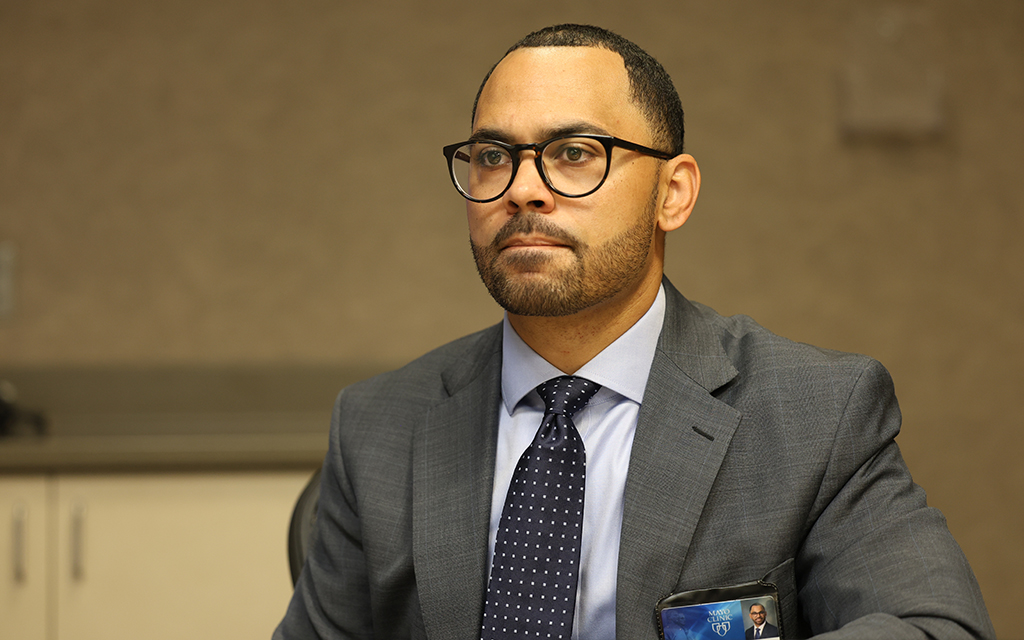
Dr. Nathan Delafield, associate chair of equity, inclusion and diversity for the department of medicine at Mayo Clinic Arizona, discusses the hospital’s collaboration with TruLite Health on Feb. 8: “This is a significant issue, not only a financial issue and an economic problem, it’s a moral problem that we have to face and address.” (Photo by Jack Orleans/Cronkite News)
Health coaching helps patients identify goals, implement new routines and navigate their care plans. Increased discussions on conditions, management strategies, community resources and advocacy techniques can streamline appointments and discussions with medical professionals.
“Coaching has shown to reduce diabetes, hemoglobin A1c measure (a blood test measuring a patient’s average blood sugar levels), it is shown to reduce blood pressure control and it is shown to reduce readmissions,” Roga said. “What we have done is taken coaching and now evolved it to health-equity coaching, with Morehouse, in using their tools around cultural competency and humility.”
At Mayo Clinic Arizona, Truity will intervene and provide real-time education to clinicians as well as feedback on how to narrow disparities and offer resources to patients. Previously, Mayo Clinic Arizona acknowledged disparities after the fact, through a review of patient outcomes, now Mayo Clinic Arizona hopes to prevent problems before they impact patient care.
“Whether it be when the patient is being roomed, and their medications are being reconciled or when the clinician is seeing them and prescribing a new medicine, there will be health equity insights based on the patient’s chart regarding who they are, where they’re from, what diseases they are diagnosed with and provide information related to health equity,” Delafield said.
Delafield sees the platform helping Mayo Clinic Arizona address disproportionate levels of disease and access to care in Arizona’s large Native American and Hispanic populations, and mitigate health disparities for many other marginalized populations as well.
“I think as we better understand various health care disparities, it will motivate us that much more to ensure we are appropriately including diverse patients at all stages of clinical research and care, in a way that ensures the outcomes are better for all people, no matter their race, ethnicity, gender, age, etc.,” said Delafield.

